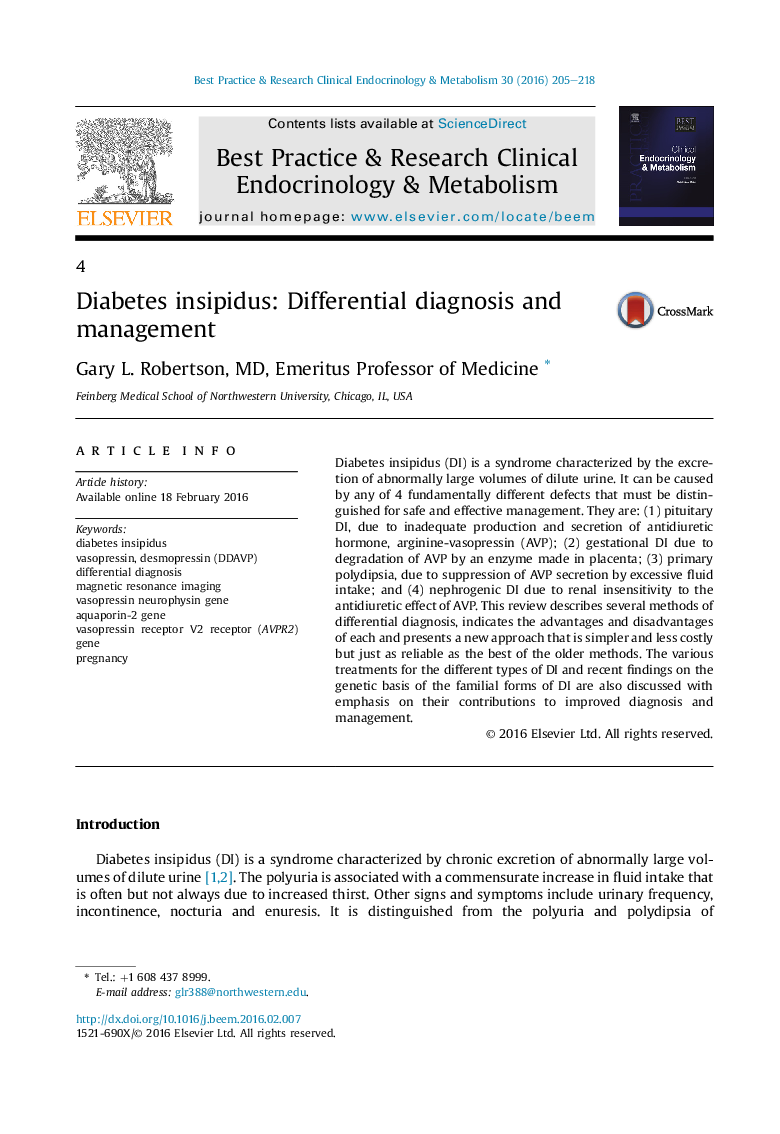| Article ID | Journal | Published Year | Pages | File Type |
|---|---|---|---|---|
| 2791482 | Best Practice & Research Clinical Endocrinology & Metabolism | 2016 | 14 Pages |
Diabetes insipidus (DI) is a syndrome characterized by the excretion of abnormally large volumes of dilute urine. It can be caused by any of 4 fundamentally different defects that must be distinguished for safe and effective management. They are: (1) pituitary DI, due to inadequate production and secretion of antidiuretic hormone, arginine-vasopressin (AVP); (2) gestational DI due to degradation of AVP by an enzyme made in placenta; (3) primary polydipsia, due to suppression of AVP secretion by excessive fluid intake; and (4) nephrogenic DI due to renal insensitivity to the antidiuretic effect of AVP. This review describes several methods of differential diagnosis, indicates the advantages and disadvantages of each and presents a new approach that is simpler and less costly but just as reliable as the best of the older methods. The various treatments for the different types of DI and recent findings on the genetic basis of the familial forms of DI are also discussed with emphasis on their contributions to improved diagnosis and management.
